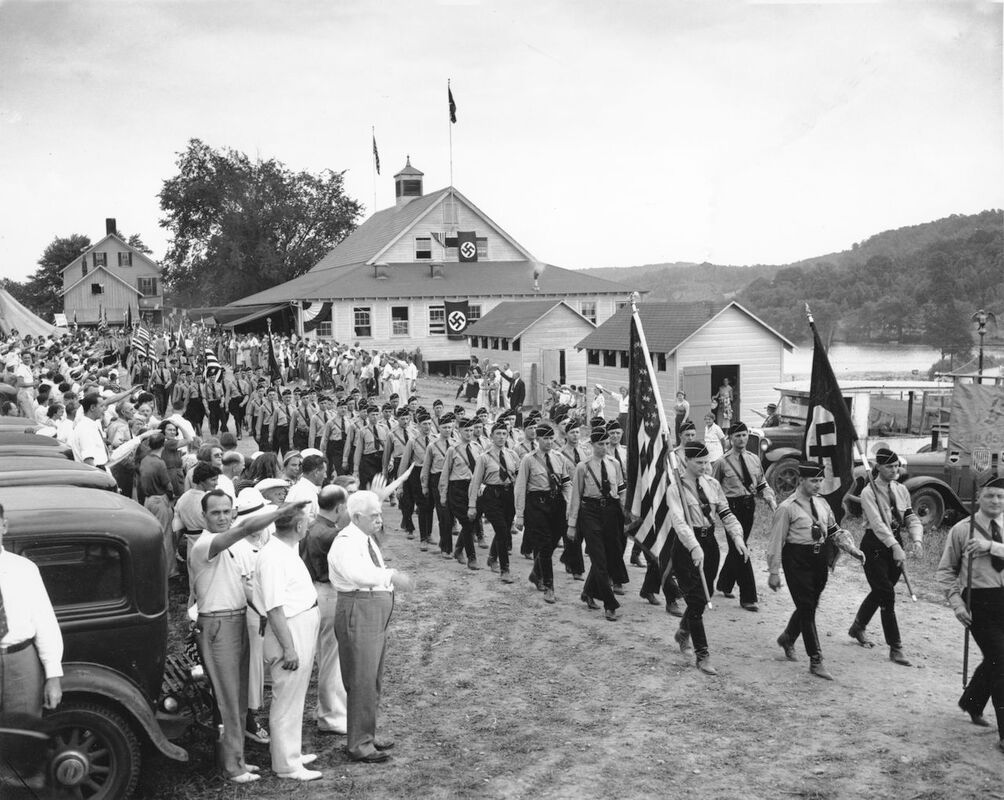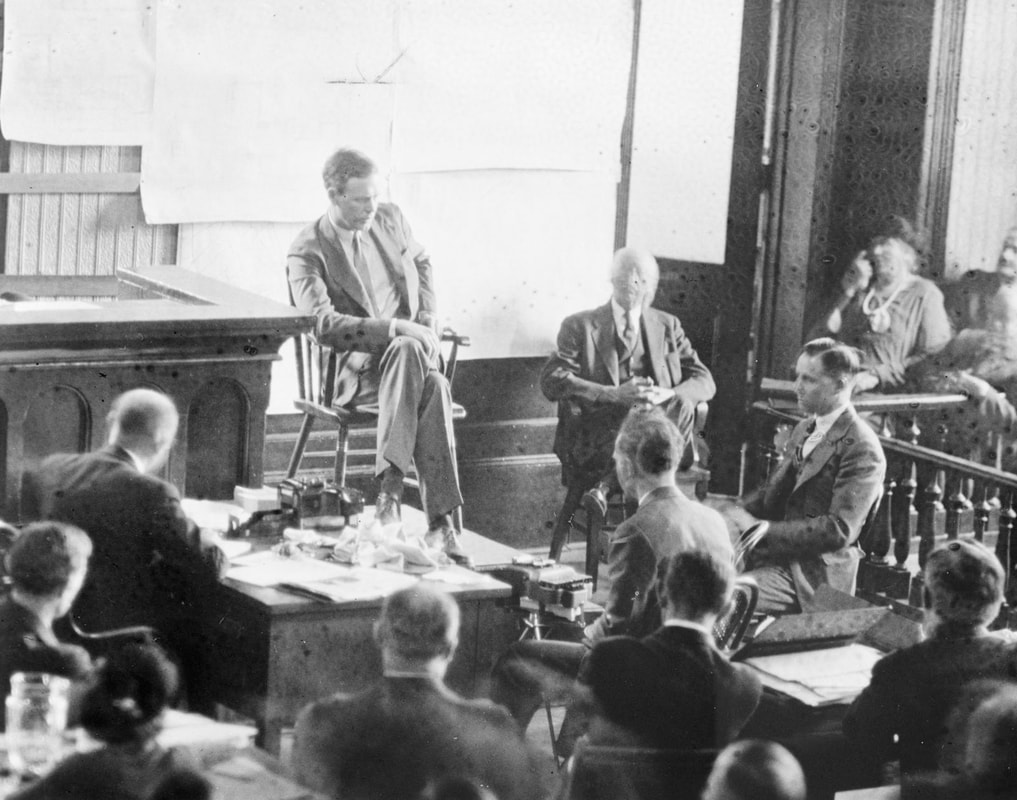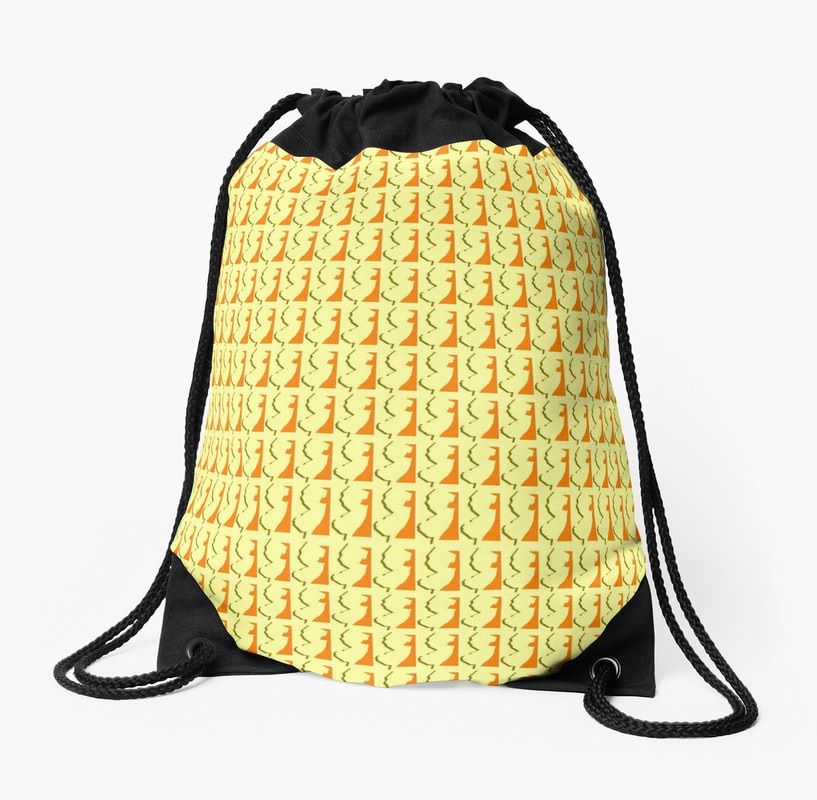- New Jersey History:
Prelude to War, Lindbergh, Hindenburgh
* Native Americans * Exploration and Settlement * British colony
* Royal governance * Path to Revolution * Revolutionary War
* Industrialization * Civil War * Post-War Economy & Reform
* Woodrow Wilson as Governor * World War I & 1920s * Great Depression
* World War II * Post-War Development * 1960s & Richard Hughes
* 1970s & Income tax * 1990s-Whitman & Florio * 9/11 & McGreevey Administration
* Codey & Corzine * Chris Christie
* Phil Murphy
* Royal governance * Path to Revolution * Revolutionary War
* Industrialization * Civil War * Post-War Economy & Reform
* Woodrow Wilson as Governor * World War I & 1920s * Great Depression
* World War II * Post-War Development * 1960s & Richard Hughes
* 1970s & Income tax * 1990s-Whitman & Florio * 9/11 & McGreevey Administration
* Codey & Corzine * Chris Christie
* Phil Murphy
|
* Home
* History * Population * Government * Politics * Lobbyists * Taxes * State Symbols * Biographies * Economy * Employers * Real Estate * Education * Recreation * Restaurants * Hotels * Health * Environment * Stadiums/Teams * Theaters * Historic Villages * Historic homes * Battlefields/Military * Lighthouses * Art Museums * History Museums * Wildlife * Climate * Zoos/Aquariums * Beaches * National Parks * State Parks * Amusement Parks * Waterparks * Swimming holes * Arboretums More... * Gallery of images and videos * Fast Facts on key topics * Timeline of dates and events * Anthology of quotes, comments and jokes * Links to other resources |
While the Great Depression and its devastating economic impact was the dominant force confronting New Jersey in the 1930s, other episodes also shaped how the state struggled through the decade. As New Deal policies slowly created jobs and restored confidence, both growing external threats and internal divisions demanded increasing attention. -- Refugees and the Nazis 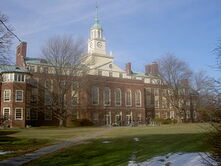 Institute for Advanced Study. Image: Wikimedia Commons Institute for Advanced Study. Image: Wikimedia Commons
The 1930's also saw the Roosevelt administration's attempts to restore economic health begin to compete with concerns over the deteriorating overseas situation. Refugees from the Nazis began to come to New Jersey, although federal quotas on immigrants to avoid competition for scarce jobs during the Depression prevented many from entering the country. In 1930, The Institute for Advanced Study was founded in Princeton, with financial support from Newark retailer Louis Bamberger and his sister Caroline Bamberger Fuld, as a center for theoretical research and to provide a haven for Jewish scientists fleeing the Nazis. Three years later, Albert Einstein emigrated to join the Institute's permanent faculty; in 1939, Einstein wrote a letter to Roosevelt advising him of research which could lead to development of a Nazi atomic bomb and suggested that the US develop its own nuclear program.. - Isolationism and pro Nazi groups Like other areas of the country, New Jersey also included groups urging that the country stay out of the growing conflict in Europe or openly sympathetic to the anti-Semitic campaign of the Nazis. The German American Bund, an organization promoted by Hitler, maintained several chapters in the state and built Camp Nordland, a 200-acre retreat in Andover Township where it held rallies drawing crowds up to 10,000 and conducted youth training programs. The radio program of Father Edward Coughlin, known as “the radio priest,” who attacked Jews and the Roosevelt policies, continued to be broadcast by a Newark radio station long after most other stations had cancelled Coughlin's program. Father Coughlin's sermons and his weekly magazine, Social Justice, which had a circulation of a million, also became instruments of anti‐Semitism until it was forced to close .after Pearl Harbor when charged with giving aid and comfort to the enemy and barred by the the Post Office Department from using the mail. The America First Committee, established in 1940 in Chicago (with early supporters including the CEO of Sears Roebuck and future presidents John F. Kennedy and Gerald Ford, and future U.S. Supreme Court justice Potter Stewart, claimed at its peak some 800,000 dues-paying members in 450 chapters who backed its policies opposing US intervention in the European war. Its most prominent spokesman was Charles Lindbergh (who had left New Jersey after donating in 1935 his home and property in Hopewell where the famed kidnapping leading to the death of his infant son had taken place in 1933). In the spring and fall of 1941, Lindbergh delivered speeches in which he criticized movements that he perceived were leading America into the war, including the Roosevelt administration and American Jews. While Lindbergh expressed sympathy for the persecution Jews faced in Germany, he suggested Jews were advocating the U.S. to enter a war that was not in the national interest. Flanders Hall, a publishing firm in Scotch Plains founded by a teacher of German at Plainfield High School emerged as one of the leading publishers of books advocating pro-isolationist policies The principal financing for Flanders Hall came from the poet and writer George Sylvester Viereck, who was indicted in 1941 for failing to register as a German agent under the Foreign Agents Registration Act, and was imprisoned from 1942 to 1947.
* How the swastika spread from suburban New Jersey: Opinion, 3/30/2019, NJ.com * Reverend Charles E. Coughlin (1891-1979), PBS.org Apart from the economy and the deteriorating situation in Europe, the 1930s also saw a series of diverse events which brought national attention to New Jersey.
-- Lindbergh kidnapping 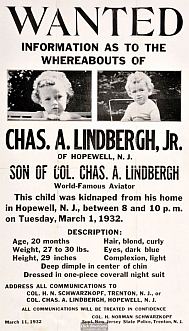
On March 1, 1932, Charles A. Lindbergh, Jr., the 20-month old son of the famed aviator Charles Lindbergh Sr., and his wife Anne Morrow Lindbergh, was kidnapped from the second-floor bedroom of the Lindbergh home in East Amwell. After an extensive search in which Lindbergh and Herman Norman Schwarzkopf, the superintendent of the New Jersey State Police, took leading personal roles in investigating potential leads to the child's location and possible suspects, the child's body was found in woods in Hopewell Township some five miles south of the Lindbergh home, with his death attributed to a skull fracture. After his conviction in "the trial of the century" held at the Hunterdon County Court House in Flemington, Bruno Richard Hauptmann, a German immigrant living in the Bronx, was executed for the child's death on April 3,1936, at the Trenton State Prison. Despite the widespread public sympathy generated by their baby's death and the ordeal of the Hauptmann trial, Lindbergh would soon spark controversy over his links with the Nazis and their American defenders. He and Anne left New Jersey after the trial was completed, moving to Europe, where they viewed the buildup of German military and aviation forces. In October 1938, Lindbergh was presented by Nazi leader Hermann Goering, on behalf of Hitler, a German medal for his contributions to aviation, which provoked anger in the US as news increased of Nazi persecution of Jews. Less than a month after Lindbergh accepted the medal, the Nazis implemented a brutal assault on Jews which came to be known as Kristallnacht, the night of the broken glass for its images of shards of glass strewn from windows of Jewish businesses smashed by Nazi mobs as they also burned homes and synagogues, leaving scores dead.
Lindbergh had become convinced that the Nazis could not be stopped in their military takeover in Europe, and after returning to the US in April 1939, became a prominent spokesman urging that his country keep out of a war in Europe and remain neutral in the conflict. He also criticized President Roosevelt's policies in sending aid to Britain and other European nations confronting the Nazis. he America First Committee was the most powerful isolationist group in the country. Its 850,000 members -- Repeal of Prohibition
On December 5, 1933: Prohibition ended with the ratification of the 21st Amendment by Utah, which became the required 36th state to ratify the amendment repealing the 18th Amendment which prohibited the sale and manufacture of alcohol. During Prohibition, New Jersey became a leading state resisting enforcement, of the ban on alcohol. Democrat Edward Edwards was elected governor in 1919 on what became known as his "Applejack Campaign" (a type of brandy made with fermented apple juice produced in the state) openly opposing Prohibition, pledging tomake New Jersey “as wet as the Atlantic.” Atlantic County and its Absecon Island, the site of Atlantic City, were estimated to be the entry point for some 40% of all bootlegged liquor coming into the country from offshore boats conveying shipments from Canada. Atlantic County's political boss Enoch "Nucky" Johnson, (later to become widely known from his portrayal on HBO's 'Boardwalk Empire"), declared: “We have whisky, wine, women, song and slot machines,” he said. “I won’t deny it and I won’t apologize for it. If the majority of the people didn’t want them, they wouldn’t be profitable, and they would not exist.” Nonetheless, federal agents and some local officials went ahead to implement the ban. During Prohibition, there were 4,768 arrests for manufacturing, sale, possession and transportation of alcohol in New Jersey during Prohibition, about 400 of them for “Jersey Lightning” or applejack. -- Morro Castle
In 1934, the passenger liner Morro Castle, sailing to New York City from Havana, caught fire on September 8 off the New Jersey coast, resulting in 137 deaths of passengers and crew. The ship later came aground off the Convention Hall in Asbury Park, remaining there for six months and attracting thousands to view the ship before the hulk was towed away and scrapped. The cause of the fire was never `determined. -- Hindenburg disaster In 1937, the German airship Hindenburg is consumed by fire as it hovers to land on May 6 at the Lakehurst Naval Air Station in Ocean County. Thirty-six people die (13 passengers; 22 crew; and one ground worker). The trip from Germany was intended to be the first of ten round trips between Europe and the United States that were scheduled for the ship's second year of commercial service. -- War of the Worlds On October 30, 1938, director and actor Orson Welles broadcasts the radio play War of the Worlds describing a landing of Martians in Grovers Mill in West Windsor, which produces panic among those believing it is an account of a real event. The one-hour program began with the theme music for the Mercury Theatre on the Air and an announcement that the evening's show was an adaptation of The War of the Worlds. Orson Welles then read a prologue which was closely based on the opening of H. G. Wells' novel modified slightly to move the story's setting to 1939. For about the next twenty minutes, the broadcast was presented as a typical evening of radio programming being interrupted by a series of news bulletins. The first few news flashes occur during a presentation of "live" music and describe a series of odd explosions observed on Mars, followed by a seemingly unrelated report of an unusual object falling on a farm in Grover's Mill, New Jersey. The musical program returns briefly before being interrupted by a live report from Grover's Mill, where police officials and a crowd of curious onlookers have surrounded the strange cylindrical object that fell from the sky. Next-- World War II
* Native Americans * Exploration and Settlement * British colony
* Royal governance * Path to Revolution * Revolutionary War * Industrialization * Civil War * Post-War Economy & Reform * Woodrow Wilson as Governor * World War I & 1920s * Great Depression * World War II * Post-War Development * 1960s & Richard Hughes * 1970s & Income tax * 1990s-Whitman & Florio * 9/11 & McGreevey Administration * Codey & Corzine * Chris Christie * Phil Murphy |
